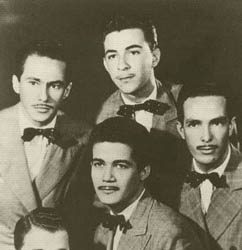 Amnesty International criticized recently what it calls "political game-playing" in the debate over public safety in Brazil. On releasing its annual report in London, the organization that campaigns for human rights affirmed that radical sectors of the media and conservatives representing the elite are feeding the so-called "politics of fear," which results in a climate of social confrontation.
Amnesty International criticized recently what it calls "political game-playing" in the debate over public safety in Brazil. On releasing its annual report in London, the organization that campaigns for human rights affirmed that radical sectors of the media and conservatives representing the elite are feeding the so-called "politics of fear," which results in a climate of social confrontation.
"Rio de Janeiro is the perfect example of the 'politics of fear' concept. There have been decade after decade of neglect by governments that failed to invest in public security, and today, for lack of this political investment, a climate of fear has been created that results in ever more violent responses," affirmed the organization's spokesperson in Brazil.
"One sees politicians clearly reinforcing an ever more repressive and discriminatory rhetoric. The political use (of the security debate) is a serious attack on the long history of the campaign for the protection of human rights in Brazil."
A World Divided
The line of attack on the "politics of fear" gave the organization's annual report its tone. Amnesty's Secretary General, Irene Kahn, stated that powerful governments and armed groups disputing political power create a "divided world" in which civilian populations are literally caught in a crossfire.
The part of the report that refers to Brazil includes the following passage: "The attempt of certain authorities to define the public security problems as a war resulted in the ever increasing adoption of military tactics by state police forces."
"The poorest communities, that receive the least state protection, were twice victimized, since they are affected by a greater concentration of violent criminality and at the same time they suffer from the repressive and unjust methods used by the police to combat the criminality."
Examples cited in the report include the political debate following the attacks by the criminal group First Capital Command (PCC) in São Paulo, in May last year, and the combat of drug trafficking in Rio de Janeiro.
It is not the first time that the organization has criticized, for example the use of the so-called Caveirão (Big Skull), the armored vehicle used by the Rio police to enter shanty towns controlled by drug traffickers.
"I just returned from Brazil where I saw the indiscriminate use of the Caveirão in the poor neighborhoods, which enters into favelas shooting, at times of the day when children are still out on the street," said Tim Cahill.Â
"Responses such as this, each time becoming more rapid and violent, are discriminatory against the poorest communities."
However, there have been some advances in Brazil over the past year, such as legislation for the criminalization of domestic violence and the development of programs against torture and defense of human rights. But the biggest problem is public security, in which there is a consistent lack of effective police policy.
Pablo Uchoa works for the BBC Brazil.




